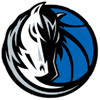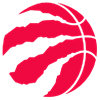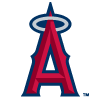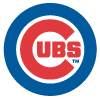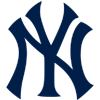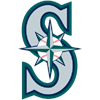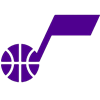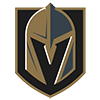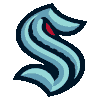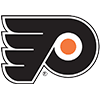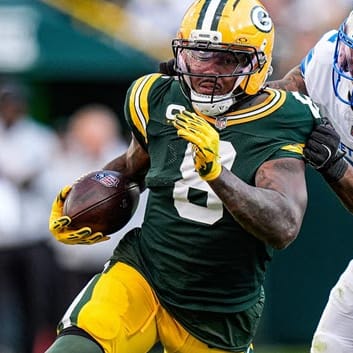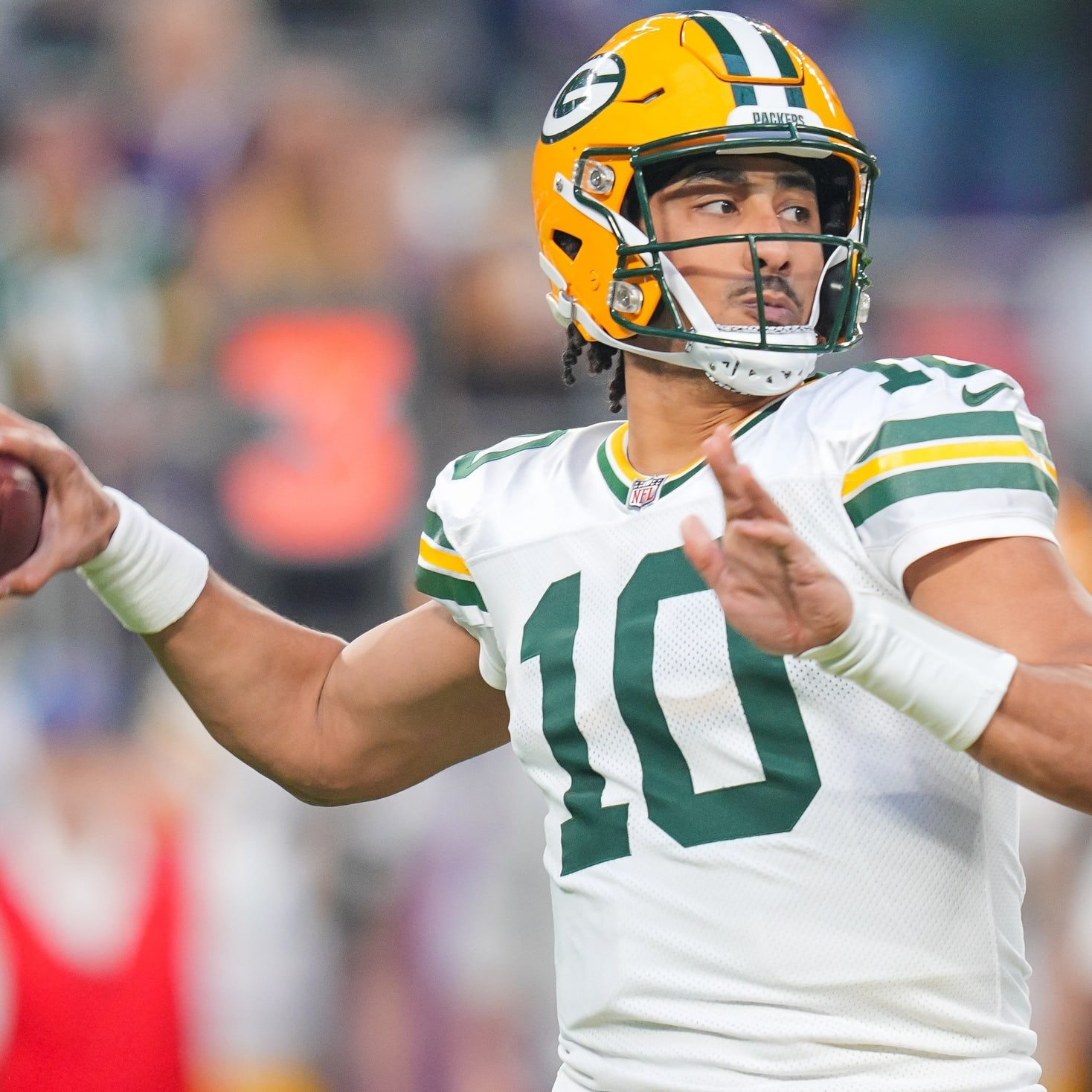This is the second post in a series looking at the handcuff options for the top running backs in the ADP in Underdog Fantasy best ball contests. Not all backup running backs are the same, and the 'handcuff' for a given case isn't necessarily obvious. In some cases there's no viable handcuff at all behind the starter, be it due to lack of viable candidates or too many viable candidates.
This article means to provide a scouting report on the relevant handcuff candidates, identifying the standouts and separating the useful from the pointless. After looking at Christian McCaffrey, Austin Ekeler, Bijan Robinson and Jonathan Taylor in the previous entry, this post will look at Nick Chubb, Tony Pollard, Saquon Barkley and Derrick Henry.
Sign up for Underdog to receive a free 6-month subscription to RotoWire and first deposit match up to $100 with promo code RWNFL. Claim this special offer now at https://play.underdogfantasy.com/pc-MyVn4cbt6l.
Nick Chubb, CLE (16.2 Underdog ADP)
The candidates:
Jerome Ford (159.1 Underdog ADP)
Demetric Felton (216.0 Underdog ADP)
Chubb is probably the NFL's most dangerous running back from scrimmage, even if the fantasy markets don't place a similar value on him. His fantasy point output is substantial but imitating him is not easy, so if Chubb's workload were up for grabs you have to factor in significantly worse efficiency from whoever claims that usage.
Luckily in the case of Jerome Ford, there's a chance Cleveland has a true handcuff behind Chubb, which is to say a player who can pick up most or all of the incumbent's workload. In other words, while Ford can't be nearly the quality of runner Chubb is, Ford at least might take up a similar carry and catch count as Chubb if Chubb were unavailable. Ford was a good bench player at Alabama before he was an excellent starter for Cincinnati in 2020, demonstrating ability as both a runner and pass catcher. Ford's athletic tools are only average – about 4.5 speed around 210 pounds – but his production implies a skill set that could make him a potential starter one day.
The one thing to keep an eye on is whether the Browns might add a veteran runner between now and the season's start. Ford is nearly 20 pounds lighter than Chubb and can't take up quite the same workload. The Browns could add a pass-catching specialist like Dontrelle Hilliard or maybe even Cordarrelle Patterson by trade, or they could add a power specialist like Ezekiel Elliott or Leonard Fournette. Such a signing would be a major hit to Ford's handcuff value, but if no such signing occurs then Ford is probably all clear. Demetric Felton is no more than a pass-catching specialist, something like a poor man's Nyheim Hines. It's true that Felton would play if Chubb were to miss time, it's just that it would likely split 2/3 Ford, 1/3 Felton or something similar, and Felton wouldn't be in on many base play calls.
Verdict: So long as the Browns don't acquire any other running backs, Ford is likely one of the high-upside true handcuffs at running back going into 2023. Felton would likely be limited to role similar to 2022 Matt Breida if Chubb were to miss any time.
Saquon Barkley, NYG (18.2 Underdog ADP)
The candidates:
Eric Gray (215.7 Underdog ADP)
Matt Breida (216.0 Underdog ADP)
Gary Brightwell (N/A Underdog ADP)
We can make this one a little shorter. The Giants already showed us in 2022 that they're somewhat content with Matt Breida playing off the bench behind Barkley, and Gary Brightwell behind Breida. It's possible that the Giants saw Breida as a complementary piece behind Barkley, meaning they might have left Breida's role unchanged and simply gave more work to Brightwell if Barkley had missed any time. This is all to say we can probably ignore them both, especially Breida.
Eric Gray is the interesting new variable. The rookie fifth-round pick demonstrated a natural skill set as a runner and receiver both, first at Tennessee and then at Oklahoma. There's reason to think Gray is ready to displace Breida right now, and in the event of Barkley missing time Gray would be more capable than Brightwell. There are two limiting factors for Gray, convincing as his skill set might be otherwise: (1) at 5-foot-10, 207 pounds he is not built for volume and (2) his mid-4.6 40 gives him a poor grade for density-adjusted speed. Gray's weak athletic testing means he's unlikely to produce explosively in the NFL, and his light frame means he can only accumulate so much volume.
Verdict: Eric Gray is likely an immediate, meaningful upgrade over Matt Breida and Gary Brightwell. Due to workload limitations and underwhelming athleticism, though, Gray is fully incapable of imitating Barkley's combined volume and efficiency. Some committee would likely occur if Barkley were to miss time, but Gray should be the best option within it.
Tony Pollard, DAL (27.1 Underdog ADP)
The candidates:
Malik Davis (214.9 Underdog ADP)
Deuce Vaughn (215.1 Underdog ADP)
Ronald Jones (216.0 Underdog ADP)
Rico Dowdle (N/A Underdog ADP)
Hunter Luepke (N/A Underdog ADP)
This one is complicated. Malik Davis is the incumbent backup to Pollard in the sense that Davis is the under-contract running back who most recently saw the field for Dallas, yet that was only because Rico Dowdle suffered a season-ending injury and Ezekiel Elliott had his contract terminated. You see a lot of analysis identifying Davis as the clear backup to Pollard and a valuable handcuff target as a result, but the fact is Davis is one of the least athletic running backs in the league and he played 81 snaps in 14 games last year. The word 'incumbent' could hardly mean less than it does in Davis' case.
We can probably cross off Dowdle, for fantasy purposes anyway, because he's an injury-prone rushing specialist from scrimmage. Whereas Davis is a skilled pass catcher, Dowdle likely is not and whatever otherwise useful carries Dowdle can give Dallas can probably be imitated by other players on the roster, even if not Davis specifically. Still, even if Dowdle is out of the way, Davis is probably not a lock to make the Dallas roster, let alone emerge as a substantial contributor from scrimmage at any point.
Ronald Jones in particular might be the reason Dowdle doesn't make the team. While Jones hasn't demonstrated special teams ability on Dowdle's level, Jones fits into the 'rushing specialist' category that Dowdle otherwise inhabits, and Jones is a better version of that category. There's a strong chance that Jones is the second-best pure runner on the Dallas roster, and a certainty that he's a better pure runner than any either of Dowdle or Davis.
Davis and Jones probably make this complicated enough, but we're just getting started. It's the rookies Deuce Vaughn (sixth-round pick) and Hunter Luepke (undrafted) who make for a particularly confusing twist in all this. Both players have uneven prospect profiles, as demonstrated by their weak pedigree, but both rookies also have distinct strengths that stand out from their competition. Both players are also candidates to provide immediate special teams reps. Another crucial detail: both Vaughn and Luepke are exceptional pass catchers. With a fullback skill set Luepke is probably among the best in the entire group in blitz pickup, too.
Whoever establishes themselves behind Pollard could have some standalone value, even if Pollard stays on the field all year. Pollard is a bit tall and light for a running back, and power running isn't really a part of his skill set. There might be slack in the Dallas backfield and if so I think we need to ask ourselves what's more likely: (1) That Dallas limits Pollard as a runner or (2) That Dallas limits Pollard as a pass-catching target. Pollard's thinner frame and history as a wide receiver, in my opinion, makes option (1) the clear answer for Dallas. If Dallas gives Pollard as much pass-catching work as possible and cuts him off on the ground instead, then that's a scenario that suits the best pure runners behind Pollard rather than the top pass catchers. That's to say, if Pollard stays healthy then Dallas has more use for Jones, Vaughn, Luepke and maybe even Dowdle than they do Davis.
Jones is a better runner and worse pass catcher than Davis. Vaughn and Luepke are both better than Davis both as runners and receivers. The only conceivable advantage Davis could offer over the field is with blitz pickup, which admittedly is something that doesn't suit Jones or Vaughn (Jones because he's bad at it and Vaughn because he's too small to be good at it). The problem for Davis advocates, even then, is that there's no obvious use for Davis' blitz pickup if Pollard is playing passing downs anyway.
Verdict: Proceed at your own risk. Be it Davis, Jones or one of the rookies, there's likely value to be had behind Pollard, even if Pollard stays perfectly healthy all year. Guessing which one of the four is not likely to be easy, and anyone telling you otherwise right now probably is selling short the depth and variation of talent in the Dallas backfield, unproven as all of them might be.
Derrick Henry, TEN
The candidates:
Tyjae Spears (171.3 Underdog ADP)
Hassan Haskins (216.0 Underdog ADP)
Julius Chestnut (216.0 Underdog ADP)
Jonathan Ward (N/A Underdog ADP)
It shouldn't need much foreword to establish the understanding that no one can imitate Derrick Henry. It's not on the table. No one can take the usage he can and no one can provide the efficiency he does on that volume of usage. Still, if Henry were to miss time then the Titans would have a lot of snaps and carries to redistribute.
The clear favorite to emerge as Henry's top backup is the rookie third-round pick Tyjae Spears, who arrives to Tennessee after a uniquely explosive career with Tulane. In terms of raw running skill it's difficult to identify many players who grade higher than Spears, who's blessed with an innate understanding of how to elude pursuers. Spears' per-carry returns – 6.8 yards per carry and a touchdown percentage of 7.3 over 427 carries – is not a volume/efficiency threshold easily achieved.
With that said, there are at least a couple reasons for concern about Spears' NFL projection. The first is that his durability is not likely to turn for the better, and he arrives to the NFL with a knee seemingly in an early degenerative state. The knee infamously had its ACL removed as a result of prior injury and treatment (don't ask me how). The second issue is that, despite his standout skill as a runner, Spears has mediocre athletic tools with which to apply that standout skill. When the pursuers get bigger and faster, situations where Spears previously sprung free might instead see his angle cut off much sooner. Spears' density-adjusted speed grade is rather poor, as at a skinny 5-foot-10, 201 pounds he could only muster a 4.54-second pro day 40. That time might have been more like a 4.6 on the combine track. Running backs who weigh 200 pounds and run a 4.6 don't tend to stick around long. Still, if Spears' athletic limitations and knee don't hold him back then his skill as a ballcarrier should shine through.
The other Titans running backs have less going for them but probably can't be crossed off. Whereas Spears has real ability as a runner, Julius Chestnut is at best an unproven fringe guy out of "Sacred Heart," though he was productive at that level and boasts a workhorse frame at 228 pounds. Chestnut was also encouragingly used on passing-down snaps late in 2022, turning 15 routes into three receptions for 41 yards. If Chestnut continues to prove himself as a pass-catching option then he could outrank Spears on the passing-down depth chart. Jonathan Ward definitely has a polished passing-down skill set, something that he demonstrated even in his days at Central Michigan, but at just 5-foot-11, 195 pounds or so Ward is too skinny to play base snaps over a long sample. Hassan Haskins, meanwhile, had a major draft capital advantage as a fourth-round pick over the undrafted Chestnut and Ward, but might have blown it all with his recent domestic violence arrest. The details are disturbing. Even if Haskins isn't cut, he was a weak prospect out of Michigan and an obviously poor pick by the since-fired GM Jon Robinson.
Verdict: Tyjae Spears is a skilled runner and should get the first shot to play off the bench as a third-round pick. Spears' ability to take on volume is less demonstrated, and poor athletic testing might complicate his NFL projection somewhat. Julius Chestnut has a chance to apply pressure on Spears, both because Chestnut has a heavy frame and has shown hints of establishing himself as a productive pass catcher. Jonathan Ward can probably be ignored as a special teams player, and Hassan Haskins might soon be cut.







